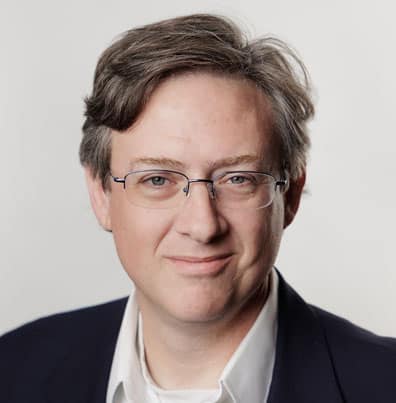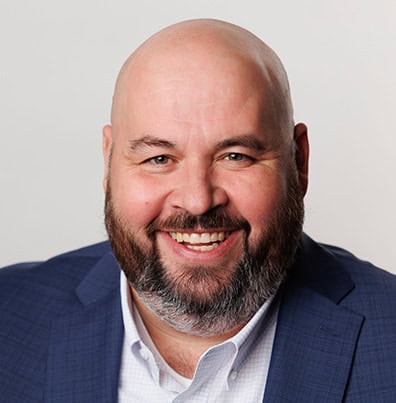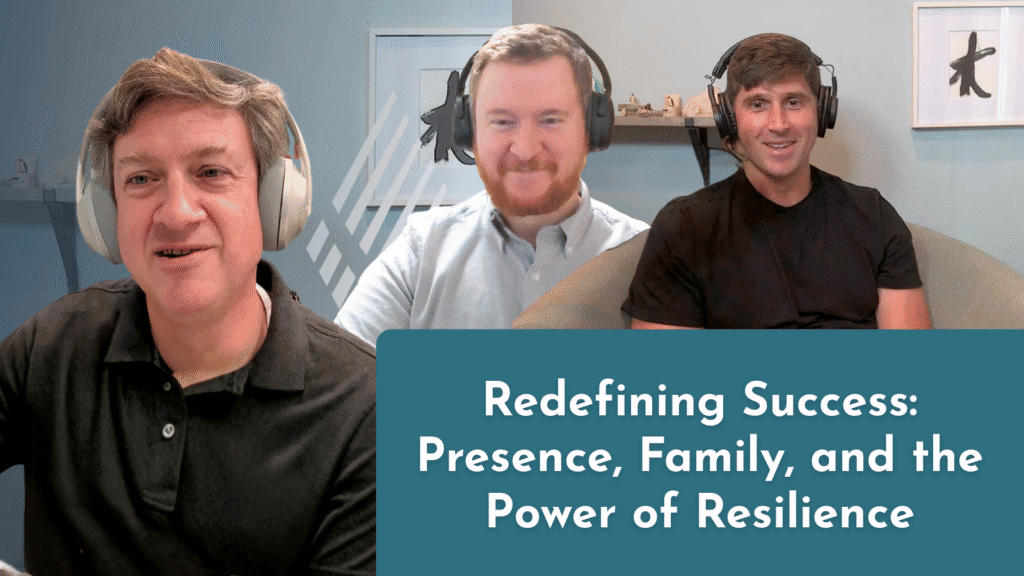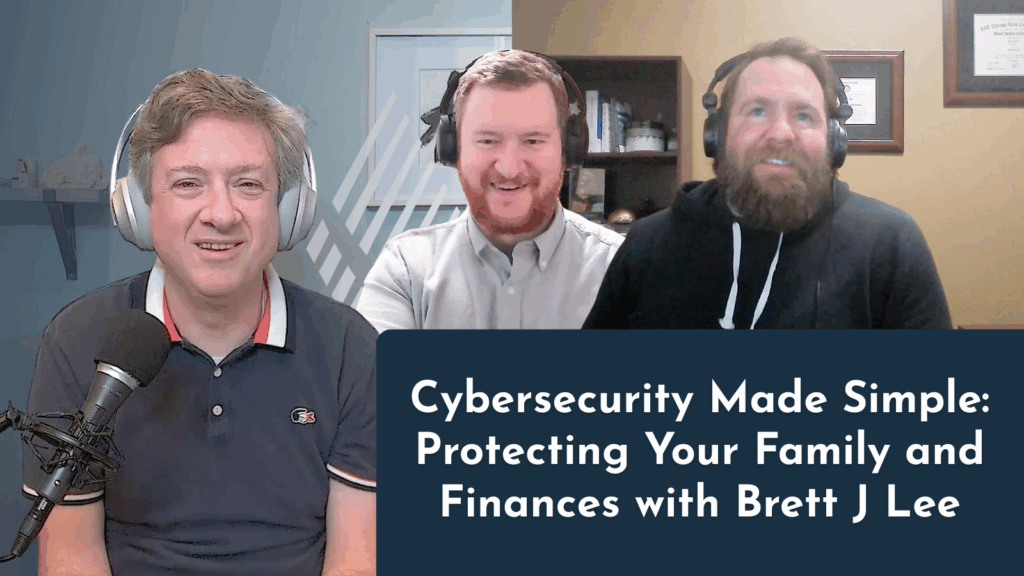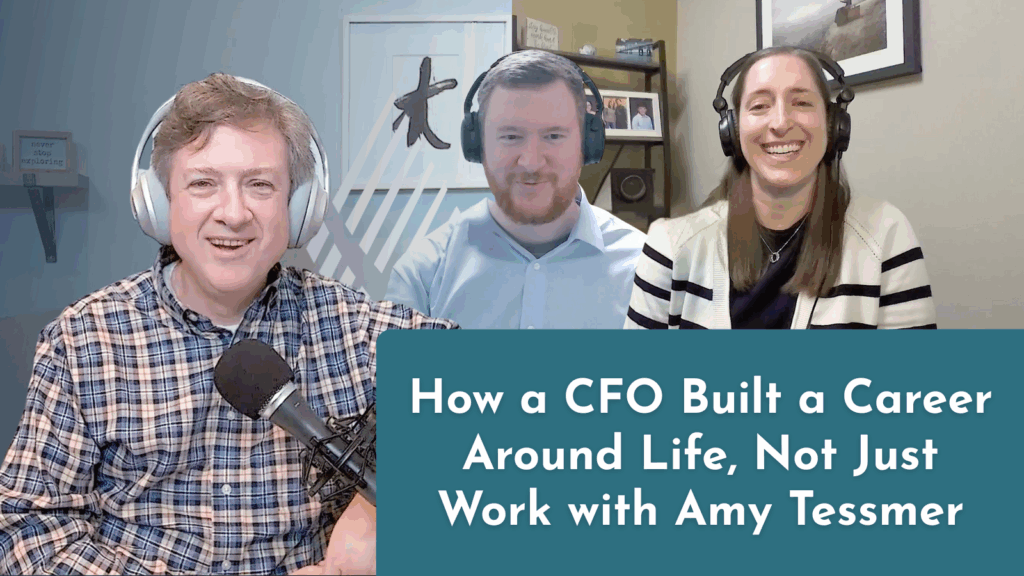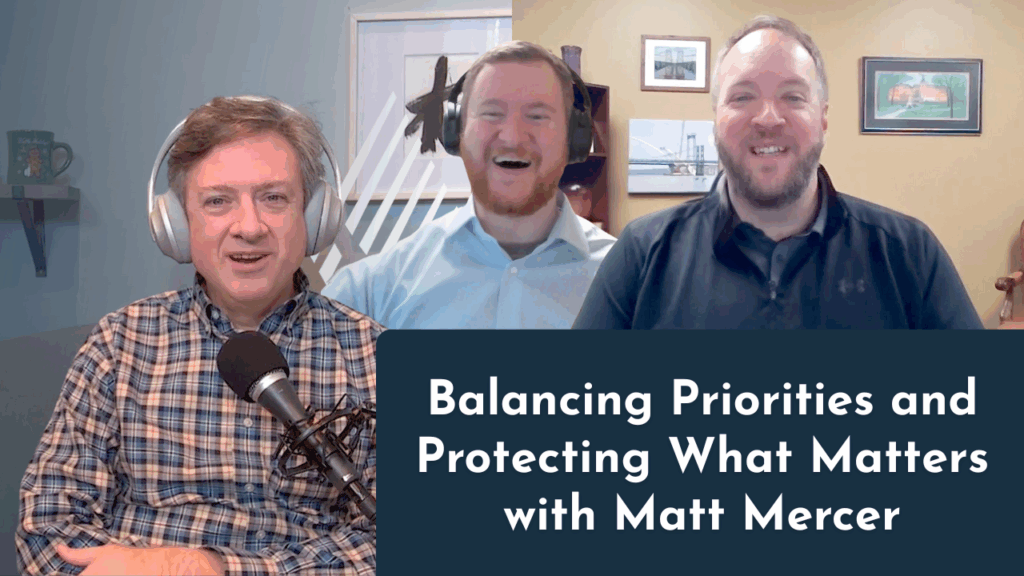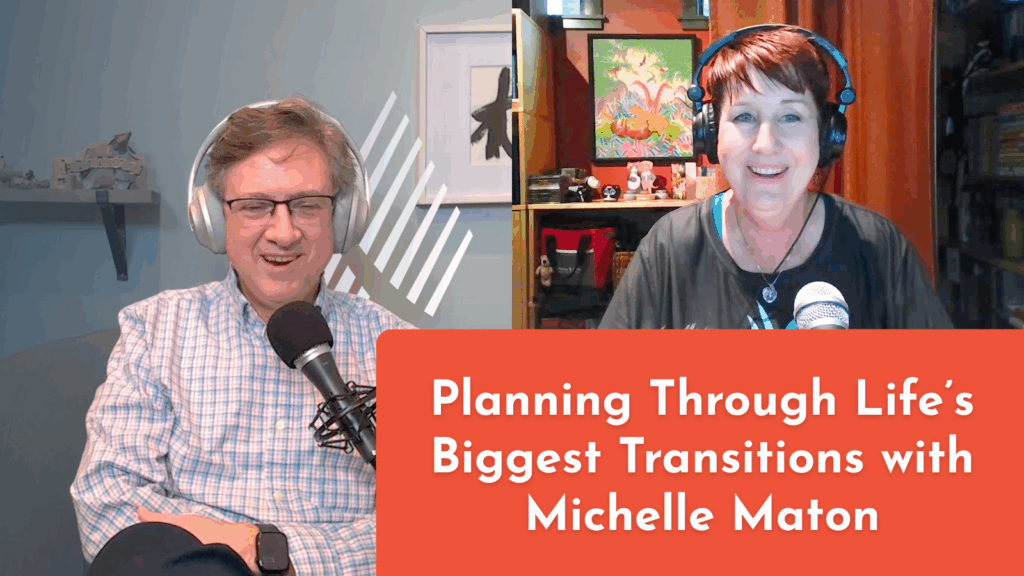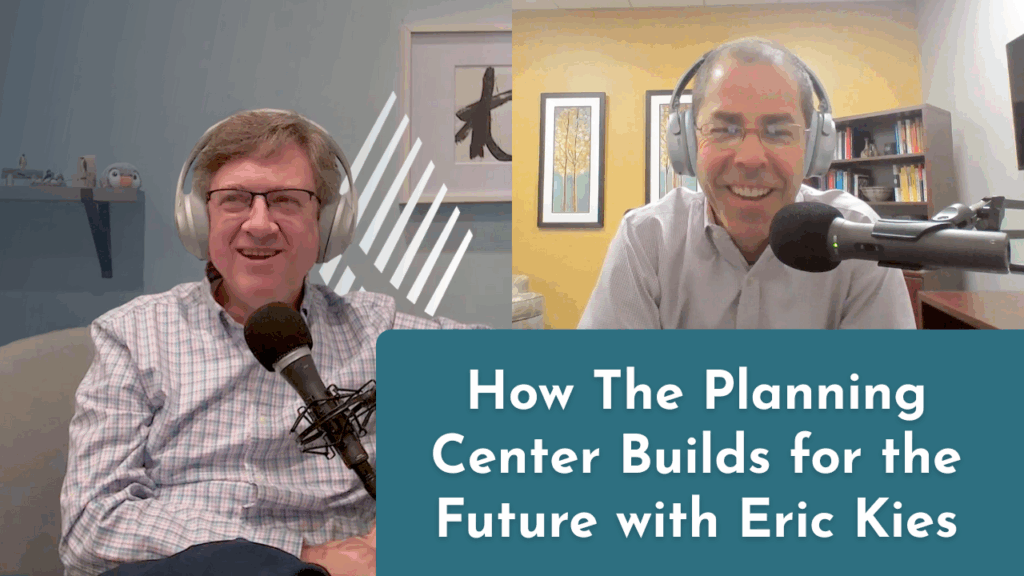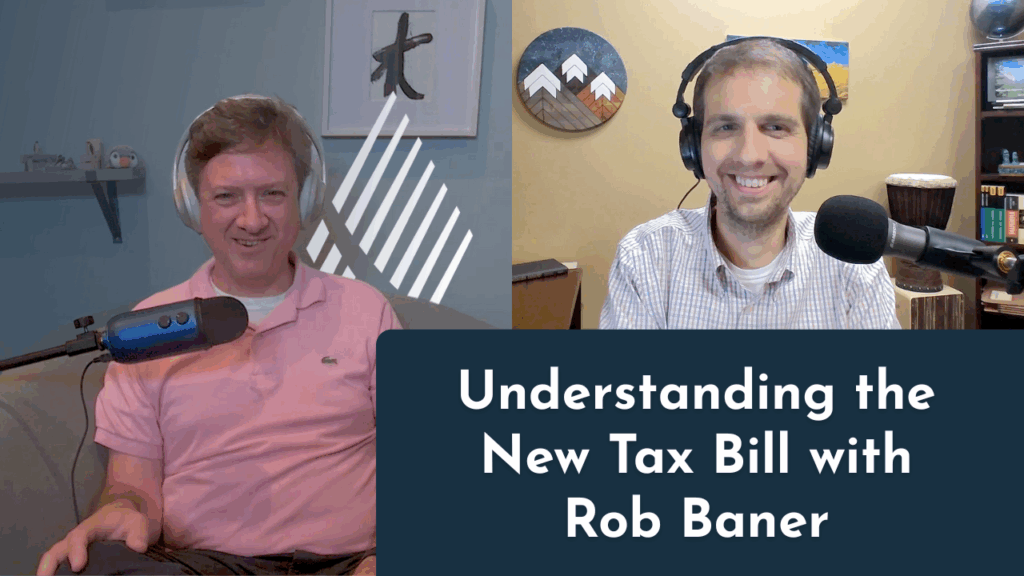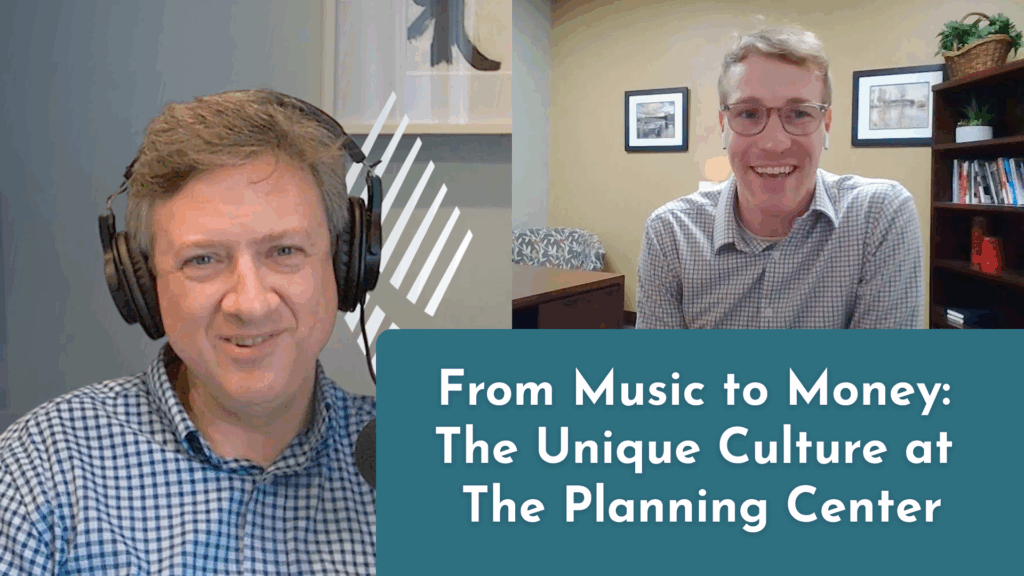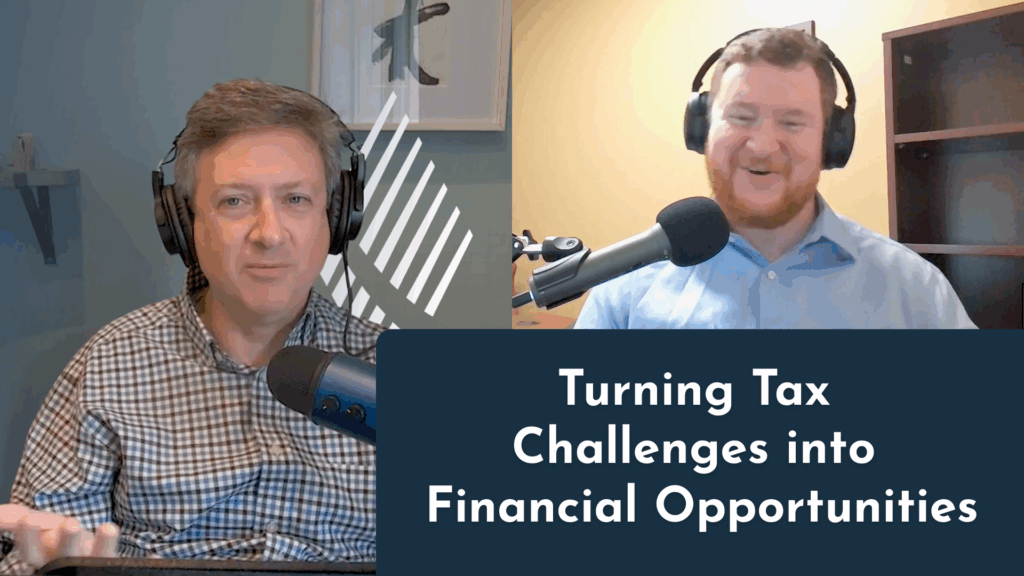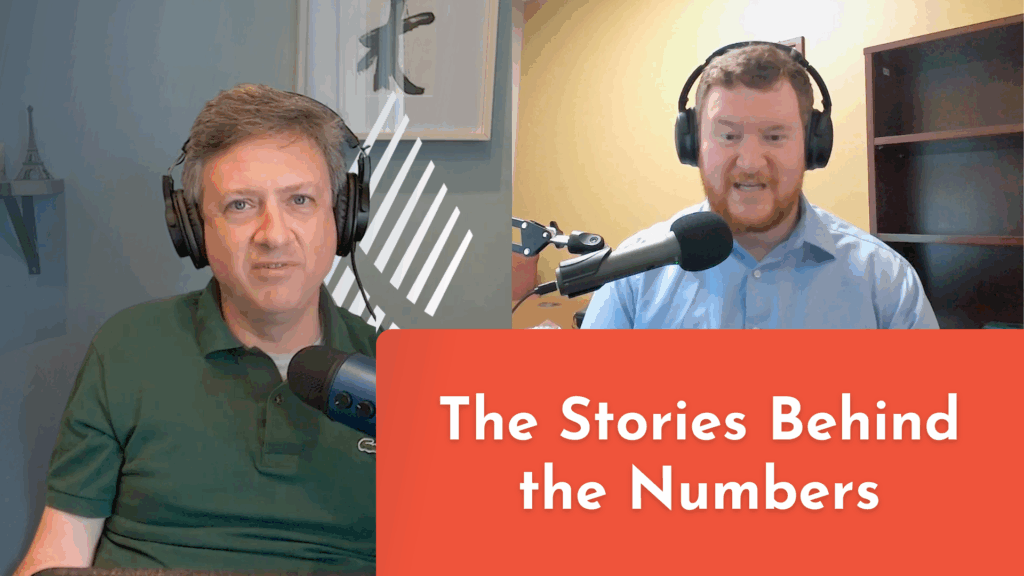[00:00:00] Patrice Sikora: Every number on a balance sheet tells a story, late nights spent building something meaningful, the risks taken, the difficult conversations, the lessons learned along the way. But true wealth is not measured in dollars. It’s woven into the stories that we create, the experiences that shape us, and the memories that outlive us.
[00:00:21] Patrice Sikora: Welcome to the Living Beyond Numbers Podcast with Jude Boudreaux from the Planning Center. This show is not about spreadsheets and financial jargon. It’s about real conversations and powerful stories. That help you align your money with your values, your dreams, and your legacy. Because at the end of the day, it’s not about how much you have, it’s about the life you wanna live and the stories you leave behind.
[00:00:46] Patrice Sikora: Now onto the show,
[00:00:50] Jude Boudreaux: welcome to another episode of Living Beyond The Numbers for here at the Planning Center. So I’m your host, Jude Boudreaux. We’ve got Caleb Erindale here, our director of Positivity. [00:01:00]
[00:01:00] Patrice Sikora: Hello,
[00:01:01] Jude Boudreaux: and I’m excited to have, uh, one of our shareholders and my good friend JJ Sessions here in our Fre Fresno office.
[00:01:08] Jude Boudreaux: So welcome jj.
[00:01:09] J.J. Sessions: Always a pleasure, Jude.
[00:01:10] Jude Boudreaux: Yeah, glad to talk to you too, and Caleb. Yeah, I know. Hey Caleb, thanks as well. Right? So, um, yeah, so really looking forward to learning. I mean, if you’d start with maybe just tell us a little bit about you, uh, you know, how you kind of got your start with the planning center.
[00:01:25] Jude Boudreaux: How did this come together?
[00:01:27] J.J. Sessions: Yeah. Um, I, uh, my dad and I worked together for a number of years, and, uh, as he transitioned out and retired and I ran the practice on my own, uh, I, I fell further and further away from my love for the business side. Uh, I just wanted to spend more time with clients, uh, and as I, uh, talked to, uh, members of my study group, um.
[00:01:51] J.J. Sessions: And got some counsel and, and advice from them. It seemed like making a, a merge of my practice into another might be a, a good fit, a better [00:02:00] fit for what I wanted to accomplish. And, uh, I linked up with Eric Keys, who I’d known for a number of years, and they invited me to, to join and over the, you know, course of a.
[00:02:11] J.J. Sessions: Few months made that decision and, and made that, uh, made that switch and, uh, never looked back. It’s been a great, uh, a great partnership.
[00:02:20] Caleb Arringdale: How long were you by yourself jj?
[00:02:22] J.J. Sessions: Uh, after my dad retired just two years, I, uh, I just found that, that, that running the business side ate up so much time that, uh, it just wasn’t as fun as working with people and then obviously spending time with family.
[00:02:35] J.J. Sessions: So I was eating up a lot more time than I liked.
[00:02:38] Jude Boudreaux: Yeah, I, so I’m fond of saying like, I didn’t realize how stressed I was about running the business until I didn’t have to do it anymore.
[00:02:44] J.J. Sessions: Yeah, exactly.
[00:02:45] Jude Boudreaux: So it’s, um, yeah, it, it, it’s a lot and I’m so grateful to not have to think about the choosing the health insurance program for a group of people.
[00:02:55] J.J. Sessions: Exactly. Exactly.
[00:02:57] Jude Boudreaux: So, um, yeah. So now, I mean, so that was [00:03:00] in Minnesota, and so now you’re in Fresno. So tell us about that transition.
[00:03:05] J.J. Sessions: Yeah. Um, in 2018, um, in Minnesota, you know. Minnesota’s can be tough in the winter time, so we’re just coming outta the winter. And, uh, there was an issue where we had our planner in Fresno, John, long staff getting ready to retire and his successor, uh, that we’d kinda lined up, didn’t work out.
[00:03:29] J.J. Sessions: And so we were looking at what we could do to, uh, remedy that situation. I luckily have, uh, a ton of family both on my side and my wife’s side on the west coast. And so we said, Hey, let’s just try it out and see if, uh, Fresno might be a good place for our family to move to. And then we can leave the, the Minnesota clients to another planet that was working there.
[00:03:50] J.J. Sessions: Um, over the course of about 18 months of doing some monthly travel to Fresno, we’ve fell in love with it and, uh, we’ve, uh, it’s been a very [00:04:00] good thing for our family and for the practice. My practice.
[00:04:04] Jude Boudreaux: Oh, absolutely. I’m excited that you’re out there. And, um, you mentioned John Longstaff. We, uh, like to talk about, you know, kind of the, some of the generation one founders, people who were pioneers of some of these different offices before we’d come together as a planning center.
[00:04:18] Jude Boudreaux: So can you tell us a little bit more about like, working with John and what was like working with them for those years?
[00:04:24] J.J. Sessions: Yeah. Um, John has is one of the most personable people you’ll meet. Uh, easy with a laugh, easy with a joke, um, but deep down just has a heart of gold. And so as I came to Fresno and, and I would spend about a month, I’m sorry, about a week, a month, uh, here, um.
[00:04:45] J.J. Sessions: Getting to know the clients, getting to know the way that he interacted with them. Um, it was, it was a very easy transition for me to start, learn to really appreciate the clients because he had that appreciation and genuine, uh, interest in their [00:05:00] lives. Um. So, uh, it was easy to work with him. Uh, you know, everyone does things just a little bit differently and, uh, he was accommodating to the way that I thought, Hey, if we could make some adjustments here and there, I think it might be a good thing for, for the Fresno practice.
[00:05:17] J.J. Sessions: And, and, uh. And he went right along with it and supported me and cheered me the whole way and talked me up with clients. And it was, uh, it was a very easy transition compared to the transition with my dad. Wasn’t as, wasn’t as smooth, uh, but uh, but he made it very easy. And, uh, the clients just appreciated and respected him so much.
[00:05:39] J.J. Sessions: And so his introduction and, and, uh, deference really at times to me made that, uh, uh, easy transition with the clients here.
[00:05:49] Caleb Arringdale: So we’ve been talking a lot about mentorship, right? So we’ve been talking with several different planners here and kind of the G two group who’ve all been mentored by someone else.
[00:05:56] Caleb Arringdale: How did that go for you? How did, how did John mentor you? [00:06:00] How did your father mentor you? How did that work out?
[00:06:03] J.J. Sessions: Yeah. You know, I think that the bulk of that mentoring came from my dad. Um, just, I started early away from my dad’s practice, kind of on my own, uh, at some insurance companies that said they were financial planning, uh, companies, uh, that provided in, in many ways.
[00:06:21] J.J. Sessions: No, no mentorship. Just a, Hey, go out and eat what you kill. And then I, I came into a manager who really, while he worked for an insurance company, his desire was to be a really excellent financial planner. He taught me some great things, and from there, I, uh, my dad said, Hey, I got, I got about 10 years before I retire.
[00:06:40] J.J. Sessions: I. If you want to come take my practice over, now’s the time. So I, I joined him and, uh, learned a lot from him. He also gave me a lot of flexibility to go to conferences and work with a study group that, uh, also provided some really valuable educational and, and growth opportunities. Um. [00:07:00] Along with just, you know, sitting by his side and watching the way that he did things and, and, uh, he was excellent on the estate planning side.
[00:07:08] J.J. Sessions: He had some really early experiences in his career with clients that, uh, the estate planning was not adequate. Close friends actually, whose estate planning was not adequate and, uh, watched how it affected families and, and was determined not to let that happen. So, uh, so I got a lot of good practice on that, uh, on that estate planning and, and on the insurance side, he was an early insurance guide as well, so,
[00:07:33] Jude Boudreaux: yeah.
[00:07:34] Jude Boudreaux: So, um, yeah, so today, I mean, our conversation, what we were gonna focus on is, um. I think we’d called it mindful cash flow. And I know you’re, you know, passionate about talking about this topic with people. And so I thought maybe you could just share a little bit about, you know, you know, what have you found, uh, helps, you know, the benefits of, uh, really thinking about this.
[00:07:55] Jude Boudreaux: I, I love hearing what you talk about how changed things with you and Carrie. So, [00:08:00] uh, maybe just share a little bit more about how you’ve seen it impact your life and then what do you think happens with clients when they really focus on this?
[00:08:06] J.J. Sessions: Yeah. Well, um, I. The shift that, uh, that came for Carrie and I was, was, you know, when we learned about First Step, which is the program that the Planning Center uses with our clients.
[00:08:20] J.J. Sessions: Um, it, it just, uh, it provides a venue for talking about money in a different way. And focusing on different areas of spending in a, in a unique way. And then, and then a platform for saying, here’s now how, uh, to make this work in practice, uh, before. Actually, I deferred to her to her, and she was the one that did all the bills and she was the one that ran everything.
[00:08:46] J.J. Sessions: And like all couples, there’s conflict about not understanding how everything’s working. If I’m not, if frankly it was me not paying attention well enough, uh, to what was happening there, um, I. So learning [00:09:00] about First Step and then implementing it in our, in our family, all of a sudden there were very, you know, each dollar had its job.
[00:09:06] J.J. Sessions: I understood what the job of each dollar was. Um, and then we each had our own money that we were accountable for to ourselves and then not to, you know, but we didn’t have to be accountable for, for what? It was just not overspending our own accounts. Um. And that that changed, uh, that changed the way that we, the Carrie and I communicate about money, um, where really it came down to, Hey, did you overspend?
[00:09:32] J.J. Sessions: No, I didn’t either. Great. All of our other expenses were paid, all of our savings accounts were funded that, uh, you know, it took maybe 10 minutes a month. It takes still maybe about 10 minutes a month to, you know, balance our budget because. It’s all set up and the pro the, the program is set. And so the only thing I have to worry about is from Friday to Thursday, not to overspend in my, in my account.
[00:09:56] J.J. Sessions: Um, taking that then to clients and [00:10:00] providing a way, uh, for them to have the same type of communication, the same. Um. Just plan for how to spend, uh, thoughtfully to how to spend. Uh, you know, that, that aligned with what we’re trying to accomplish, uh, has been a big game changer. Has, and I’ve seen some really amazing experiences with clients climbed outta debt or, or worked towards a goal, uh, where they had been stagnant for a number of, uh, years, even.
[00:10:30] J.J. Sessions: So it’s been a great, uh, that’s been a great tool, um, which has made me really passionate about talking about it and, and working with clients, uh, on that area.
[00:10:41] Caleb Arringdale: So did you and your wife come from like different socio socioeconomic backgrounds relatively similar? Or was, was it how, like how did this develop?
[00:10:47] Caleb Arringdale: I.
[00:10:47] J.J. Sessions: No, I mean we actually, uh, we actually came from both pretty, uh, um, growing up for both of us a little bit rougher. Mm-hmm. Um, my dad, [00:11:00] I remember I was, uh, I had just graduated from high school and I was on my way to Spain. I spent a couple years in Spain, uh, and I’d con had a conversation with my mom and she said something to the effect of, Hey, your dad has made more this year than he has in the last few years in his career.
[00:11:15] J.J. Sessions: So growing up, it was tight for us as he was. Of starting his business. Uh, on my wife’s side, the same thing. Just, uh, always kind of struggled. Um, uh, and, uh, but how it came to how, how that spending piece came to pass. Uh, we just had different ways of looking at things in different ways of doing things. And without a clear picture of what, what money went where and who had what, uh, it was just a little more difficult to manage.
[00:11:45] Caleb Arringdale: Because I think that’s really interesting that you can be from like the same socioeconomic background and yet live totally different ways of looking at money. Yeah. And so it’s styles can be totally different regardless of where you come from. So that, that’s cool. Thanks.
[00:11:57] J.J. Sessions: Yeah, you bet.
[00:11:58] Jude Boudreaux: So JJ, on that kind of thread of [00:12:00] communication, like with your partner, you think of like strategies that work best for couples who have maybe different spending priorities or have different money backgrounds or stories.
[00:12:09] J.J. Sessions: You know, there, there has to be, each person has to have a, a clear picture of how things are being spent currently. Right. Um, for the, for our clients. It’s that first step, uh, system is to say, Hey, here is how. All of our money flows. Here’s what comes in. Here’s what goes to this category, here’s what goes to that, and here’s what you have to spend.
[00:12:34] J.J. Sessions: If you don’t know that, if there’s no, if there’s no clear picture, and if people aren’t talking about it. It’s almost impossible for it to come about. So to have some type of system that says, Hey, I’m accountable for a certain dollar amount. Uh, this is for this category, this is for this category. Um, without having that, it makes it really hard.
[00:12:57] J.J. Sessions: Um, and in fact, what [00:13:00] we often see is people overspending and then they’re just playing catch up all the time.
[00:13:05] Jude Boudreaux: Yeah. Oh, sure.
[00:13:06] J.J. Sessions: Did that answer the question?
[00:13:07] Jude Boudreaux: Yeah. So yeah, kinda on that, I mean, so maybe this is on that same thread of like overspending and catching up, but, and so in your experience, what’s the biggest cash flow mistake you see?
[00:13:16] Jude Boudreaux: You know, these financially successful families make, you know, just maybe despite their high incomes. Yeah. That, um, yeah, I know, I see sometimes when I sit down and work with families, they say like, where’s all the money going? Like, I feel like we’re making more than we ever have, and yet I still don’t feel like I have any control of it.
[00:13:31] Jude Boudreaux: So what, how do you handle that?
[00:13:33] J.J. Sessions: Well, um, what I often, I’ll tell you an early, an early story, uh, had a, a pilot client, uh, made pretty good money. And, uh, in the course of the conversation, I encouraged them to use this first step program, um, which in, in a certain section for the control bucket. Um. You each have a designated dollar amount [00:14:00] that, that you get weekly and then you don’t.
[00:14:03] J.J. Sessions: That’s the only thing you really have to track is, hey, from Friday to to the next Thursday for that one week time period, here’s the dollar amount you can’t overspend. And what I encourage them to do is to. Is to weed themselves off of credit cards and use debit cards, um, to, to do that. And they said, well, we like the rewards.
[00:14:21] J.J. Sessions: We, you know, we, we like the flexibility, we like these things, so we don’t wanna do that. And I said, okay, that’s fine. So what we’ll do is don’t spend any money out of that, out of those accounts. Just put the money in there each week, and then at the end of the month, you pay the credit card bill. But the first month that you don’t have enough in that account to pay the credit card bill is the last month you use credit cards.
[00:14:41] J.J. Sessions: Well, that first month passed and they came back in and they had overspent by out $1,500, you know, and so, and so, it was a pretty clear for them, it was clear to say, okay, so maybe we don’t have a really clear picture and maybe using credit cards is not the best manner of doing it. So, uh, again, without having those [00:15:00] clear boundaries.
[00:15:01] J.J. Sessions: I hear a lot, oh, I pay the credit card, you know, off every month. That doesn’t really tell me anything because have you set aside money for those upcoming expenses that will be coming down the road or those months, you’re just gonna have to tighten your belt a little bit. So using credit cards, uh, not having a system for, uh, monitoring exactly how much you’re spending, those are the things that kill people and push it.
[00:15:26] J.J. Sessions: Push it so that they’re. All of a sudden their fixed expenses have to go up because they’re making now a new credit card payment, which again, if you put a new category over here, you’ve gotta take it from another bucket. So,
[00:15:39] Jude Boudreaux: yeah. Well, thanks. I think that’s a really, you know, practical, you know, overview and way of, of thinking about this.
[00:15:46] Jude Boudreaux: So, uh, so have you thought about like how families create meaningful boundaries around kind of lifestyle or, you know, you get that big raise and so now income has gone up. Um, how do you. Find ways to balance maybe doing [00:16:00] things and not, you know, telling ourselves a story and feeling deprived. ’cause we’re saving money for other goals, but we’re not feeling it in terms of the things we’re doing.
[00:16:09] J.J. Sessions: Uh, we actually just did, uh, something like that where we were just taking a look at, um, you know, some changes in in income and saying. Are we doing everything that we want to do? Um, and there was something glaring, which I think, uh, in our family we, like, we do a lot of sharing, uh, and, and we give, we give, uh, money.
[00:16:32] J.J. Sessions: Um, and we think we do a pretty good job of that. But there are just some, some, uh, opportunities that we hadn’t set aside money for, you know, charitable type of, uh, things. Uh, and so we just said, Hey. There are this list of trips I want to go do, and there are a list of things we opportunities to, to provide our kids.
[00:16:55] J.J. Sessions: Um, but is that, does those, do those really in line with, with [00:17:00] our values and what’s important to us? And it came down to saying, well, yes, I. It they do, but maybe we don’t have to do it as much. And so let’s take a certain dollar amount and every quarter we set it aside and you know, we have, we have six children, we have three at home still.
[00:17:16] J.J. Sessions: Uh, and so we sat down just, uh, about two weeks ago and said, Hey, we have set aside this much money on a quarterly basis and this money’s gonna go for something. Uh, you know, to, by way of how can we make an, uh, an impact in our community, in our church community, in the families that we interact with. And so encourage the kids to look for opportunities.
[00:17:39] J.J. Sessions: Uh, you know, hey, maybe there’s someone you hear about at school who, you know, air conditioner just went out. Hey, can we put some money towards that? Or is there a GoFundMe that you’re really passionate about, you know, for, for some family in need. Um. But we had that, we had the discussion, here’s what we have [00:18:00] saved money for, here’s what we’re putting stuff towards.
[00:18:02] J.J. Sessions: What are we missing? Is, is, is what we’re saving for. And spending currently lining up with what’s really important to us and really what we want our legacy to be, what we want our impact in our community to be. And in that case, we’d fallen short a little bit and so we’d set aside money specifically for those things.
[00:18:20] J.J. Sessions: But I think that it’s having. The conversation and then knowing, okay, what is the dollar amount that we can and should set aside for whatever priority we have.
[00:18:32] Caleb Arringdale: That idea of values keeps coming, keeps circling back in our conversations too, that the first thing you need to do is figure out what your values are and then let the money kind of follow those rather than we have money.
[00:18:44] Caleb Arringdale: Okay, now let’s decide our values. Like, no, that, that’s the backwards way to do it. So these first conversations have to be on, I. Like, what do we care about? What is, as you said so, so eloquently there, what is our legacy? What impact do we want to have? What experiences experiences do we want to have, do we want our families to have, and [00:19:00] then let’s use our money to move towards that.
[00:19:03] Caleb Arringdale: I, I think that’s great.
[00:19:04] J.J. Sessions: Yeah. I mean, we just, we feel like, um, from a financial standpoint, we’re, uh, very, we would call it blessed. And, and so how can we use that to, um. To make an impact in, in those people and communities and services around us.
[00:19:24] Jude Boudreaux: Yeah, no, that’s great and I feels like that probably opens up opportunities to discuss then money with your kids as well.
[00:19:31] Jude Boudreaux: You brought, you mentioned them on, in talking about this, so is has thinking about spending, you know, is that a conversation that you have with them? How do you, how do you talk with your family about it?
[00:19:40] J.J. Sessions: Yeah. One of the greatest things we did, this is probably 6, 7, 8 years ago, um, is I got a giant butcher slice of butcher paper and I divided up all the different things that we spend all their, our different bills.
[00:19:54] J.J. Sessions: Um, and then I. I made it a little more complicated and I just took a hundred dollars, I think it was a thousand dollars, and [00:20:00] said if I divide it up, um, by percentages, what goes where? And I went to the bank and I like walked in and I was like, I’m really sorry but this is the cash I need. But broke it down into if a thousand dollars represented our entire monthly budget, um, you know, whatever.
[00:20:16] J.J. Sessions: 30% goes to mortgage or whatever that is. And so, but we took it and I’d lay it out and I’d say, okay, here’s the list. Let’s take go by section, by section. So we said, mortgage is this, this dollar amount. So they would count out the, the money and they’d put it in that. And so it’d go where if this goes it, groceries, this goes to gas, this goes to our savings.
[00:20:35] J.J. Sessions: Now, when we go on a family reunion trip every year, this dollar amount is set aside for that. You know how when we go and we. At some point in the future, we’re gonna have another car payment. Let’s put that we’re setting the money aside for a future car. So that dollar amount goes there, you get to the end and there’s no money left.
[00:20:52] J.J. Sessions: And so the conversation comes down to, okay, so when we go to the store and it’s like, Hey dad, I’d love an iPad. Well, I’d love an iPad too, but [00:21:00] where’s that gonna come from? Do we take it from the family reunion account? And some kids would say, yeah, please. But for the most part, um. You know, it’s a, it’s a telling story.
[00:21:10] J.J. Sessions: It’s a, we’re trying to train them to say, give every dollar a job and make sure that they’re allocated appropriately. Um, and if something has to change, it makes it really easy to pivot from there. But it is a, it creates that idea in their heads that, you know what, we don’t just have free money just to go blow it on whatever we want to.
[00:21:32] J.J. Sessions: Um. But we, but we do have enough and we are, we’re being purposeful in how we’re putting our money in different places. One of the greatest things we ever did, and it stopped a lot of the, Hey, can I have, can I have that, um, at least for a little while.
[00:21:47] Jude Boudreaux: Yeah. That’s amazing. I, um, I. I think there’s so many things that are important about talking with children about money, and even just the opportunity that you open the conversation is, is super important to say, Hey, [00:22:00] we can talk about this.
[00:22:01] Jude Boudreaux: You know, this is a subject that is, is discussable. It doesn’t hang out in the dark, and we’re not afraid of, you know, we put boundaries around this, but we can, we can talk about this just like other parts of life that might be difficult and we’re gonna make mistakes and we’re gonna learn together from this.
[00:22:15] J.J. Sessions: Yeah.
[00:22:16] Jude Boudreaux: How do
[00:22:17] Caleb Arringdale: you deal with lifestyle inflation then? Because I mean, obviously in your own life, as you said, like you’ve gone, both you and your wife from maybe struggling a little bit more to like struggling less. So like how does, and obviously we see a lot of families who are in that same situation who just kind of might like, I think of like doctors who start off as residents making nothing and then move to attendings and all of a sudden their financial situation changes so much.
[00:22:40] Caleb Arringdale: What, how do you help them deal with that lifestyle inflation?
[00:22:45] J.J. Sessions: So. I hate to go back to it, but first step when you put the, you know, here’s the change in income. If you load that into the system, there’s these bars that say, here’s what goes to your kind of your static expenses. Here’s your [00:23:00] control expenses, here’s your dynamic expenses, and then there’s a bar that says, here’s what’s remaining.
[00:23:05] J.J. Sessions: That’s the conversation. Okay. If this is what’s remaining. How do we allocate that? Where is that gonna go? Um, and that’s where, you know, we had this conversation, you know, a few weeks ago where I was like, Hey, let’s take of this thing. Let’s put this dollar amount aside and this will be specifically for how can our, our family make a direct impact in our community?
[00:23:28] J.J. Sessions: But it, it, it’ll show you right there. There’s the, this is the remaining stuff. Never leave something without a job. That’s gonna be, that’s a dangerous thing. That’s where all of a sudden, it’s like, the worst thing I hear someone say is, I think we can swing that payment. You know? And it’s like, wait, wait a minute.
[00:23:44] J.J. Sessions: You think like, figure out exactly what you wanna do and, and make it work for you.
[00:23:49] Jude Boudreaux: Nice. Well that’s amazing. So now, um. I mean you, this is, that sounds like one of them, like my next question was, you know, about what are strategies you see successful p you know, professionals [00:24:00] help manage cashflow during some of those bigger transitions.
[00:24:03] Jude Boudreaux: You know, maybe when somebody’s, you know, moving from retirement, you know, been working, working, working, saving, saving, saving, and now we’re retired. How does flow obviously changes then? So, uh, same concepts, like what are, what does that conversation look like?
[00:24:17] J.J. Sessions: I think it’s a very similar concept. Um, the. It changes even before that.
[00:24:24] J.J. Sessions: Um. When it gets to a point where you have that some remaining in there, um, there’s a conversation I like to have with clients and it’s a Venn diagram that really, it combines three things. It combines money, it combines time, and then the third one is health. And you’re not always gonna have all three all the time, but there are gonna be windows in your life when you have all three of those.
[00:24:48] J.J. Sessions: And those are opportunities where. I encourage clients to say, Hey, if you’re on track for retirement, for those goals and you’re on track, you’re doing a great job of managing your spending, and you have the time and the health to do [00:25:00] it, for heaven’s sakes. Let’s find a way now to use those to create memories with children, with grandchildren, with spouses.
[00:25:08] J.J. Sessions: Um. To, to do some things that you really want to do. And that could be, you know, that could be things that you wanna do for yourself. It could be do things you want to do, um, you know, for, for other people or organizations. Um, but to think really, uh, thoughtfully about, uh, that window is, is actually pretty small.
[00:25:30] J.J. Sessions: Um, and what we see is often people will, will. We’ll have the time, they’ll have the money, they’ll have the health, and they say, well, I’m just not sure I’m gonna have enough. And so I’ll just do this. Let me work a little bit longer. Or Let me not take the time. I’ll just use that time and reinvest it in work and eventually we’ll get to it.
[00:25:49] J.J. Sessions: And the number of people I’ve seen that have gotten to the point where it’s like, Hey, now we have the time and the money, but now we don’t have the health. Right. Um. So [00:26:00] it’s, so to kind of do, uh, a little bit of self-reflection and say, Hey, if we’re in that, that window, how do we take advantage of those opportunities, um, and use that money to, to really take advantage of that window?
[00:26:14] J.J. Sessions: I mean, that’s, that’s ultimately what it is.
[00:26:16] Caleb Arringdale: I, I think so much of this job has not, has nothing to do with numbers, right? It’s so much about behavior, and I think that’s exactly what you brought out there, that how to use this right.
[00:26:28] J.J. Sessions: As long when you have the numbers down, that’s when you can move beyond that and say, okay.
[00:26:33] J.J. Sessions: When you have a clear understanding, hey, cash flow is good, projections are good. You know, Jobs’s going great. Yeah. Now’s the time to have I, I mean, I think you should do it all along, but you should have a little bit more freedom to say, Hey, now’s the time to think about how to do more.
[00:26:50] Jude Boudreaux: So jj, I think we’ll move over to some rapid fire questions as we kind of Okay.
[00:26:54] Jude Boudreaux: Start to wrap this one up. So, uh, very important one first always is like, what is your favorite animal? [00:27:00]
[00:27:00] J.J. Sessions: My favorite animal? Yes. Wow. Uh.
[00:27:09] J.J. Sessions: Like, never once thought about my favorite animal. You have six
[00:27:12] Jude Boudreaux: children. I don’t know how that’s not possible. This hasn’t come up, but Oh, they have
[00:27:15] J.J. Sessions: plenty of favorite
[00:27:16] Jude Boudreaux: animals.
[00:27:16] J.J. Sessions: Yes. It’s just whether it’s my favorite animal, I, you know, I actually love grizzly bears. Terrified of them, but just the power. And, you know, they’re, I think they’re absolutely gorgeous, uh, animals.
[00:27:27] J.J. Sessions: So. I would love to see one in the wild and never, never get too close. What’s that? How? How tall are you jj? Six two.
[00:27:35] Caleb Arringdale: Okay. So Matt Seaverson six. Six. Yeah. Also loves bears. I thought maybe this was like a tall guy thing. Really liking the bears, so, okay.
[00:27:43] J.J. Sessions: No, just fascinated by ’em. I think they’re just beautiful animals.
[00:27:46] Jude Boudreaux: Nice. I love it. So is there an item you think is always worth spending more money on?
[00:27:53] J.J. Sessions: Uh, experience. I, I think that there are very few things that educate us, like experience, [00:28:00] um, travel for our, for me and my wife. Uh, we love going different places. We love getting off the beaten path, meeting real people in the, in the real settings, uh, and learning more about them.
[00:28:12] J.J. Sessions: Uh, it just, I, I think few things help as much as getting outside our normal. Clovis, California neighborhood, uh, and seeing what other people’s lives are like. Uh, and then learning to empathize, learning to, um, really love and appreciate other people for the differences.
[00:28:31] Jude Boudreaux: Nice. So maybe on the same line, but what is some of the best money you think you’ve ever spent?
[00:28:38] J.J. Sessions: I, uh, carried. My wife and I went to Spain, uh, January of 23. Uh, I had been there in 1995 and 1996. Um, and it was the first time going back, uh, place that has my absolute heart to show her some of those places and then find new places that I’d never been to in the country. Uh, just, [00:29:00] uh, that was worth every dollar that we spent.
[00:29:04] Jude Boudreaux: Awesome.
[00:29:04] J.J. Sessions: And pocket knives.
[00:29:06] Jude Boudreaux: Right. I knew that is a, that is a special passion of yours.
[00:29:09] J.J. Sessions: Yeah. I just, just like a good pocket knife.
[00:29:12] Jude Boudreaux: Love that. So, um, tell me about the last achievement that you celebrated and what was it? How’d you celebrate it?
[00:29:22] J.J. Sessions: Uh, so it wasn’t my achievement, but it was my wife’s, um. She was diagnosed with breast cancer October 23, uh, and, uh, 24 was kind of a tough year for us.
[00:29:36] J.J. Sessions: Um, and, uh, to celebrate her, she’s, she’s done, done with chemotherapy, just working on, uh, we keep joking, just working on growing her hair back. Um. We went to, uh, Costa Rica for, with, uh, with some friends, uh, in March. Uh, that was a good, that was a good celebration and well worth the, well worth the money spent on that too.
[00:29:59] Jude Boudreaux: I [00:30:00] think it’s so important to recognize these, um, passages of things. Um, and so that’s great. I, I’m glad y’all that was part of that journey for you.
[00:30:10] J.J. Sessions: Yeah,
[00:30:11] Jude Boudreaux: yeah. Yeah. So, um, travel, favorite place to visit.
[00:30:18] J.J. Sessions: I, I’d go back to Spain. I just, uh, I keep joking with my wife. Like I, I would go every year. Uh, I wanna go everywhere in the world and stop there on the way back.
[00:30:28] J.J. Sessions: Just love the country, love the people. It’s, it’s got my heart, just,
[00:30:33] Jude Boudreaux: yeah. Love it. And any dream trip that you haven’t gotten to take?
[00:30:38] J.J. Sessions: Um, I’m really, I really wanna go to Turkey. Um, that’s on the list. I just, I have this desire to go and seems like it’s becoming less stable there, so probably the sooner the better.
[00:30:50] J.J. Sessions: Nice.
[00:30:50] Jude Boudreaux: So if you can slide under, under that one.
[00:30:52] J.J. Sessions: Yeah. That’s the goal.
[00:30:54] Jude Boudreaux: All right. Um, best advice anybody ever gave you.
[00:30:58] J.J. Sessions: So, uh, [00:31:00] had a mentor, uh, as a teenager actually. Um, and his, uh, his advice was, um, it, it’s, it’s, it’s a little bit more secular for, I’m sorry, more, more for my religious upbringing. But he just said, Hey, build Zion around you.
[00:31:17] J.J. Sessions: And that Zion is the, is like the, um. Like the ultimate expression of a, of a people who are connected and a loving community. Uh, and so my, like, that’s my life goal is like, how do I, how do I draw my neighbors in and love them? How do I draw the people that are my congregation in, um, you know, the, my friends, uh, Jude is one of my closest dearest friends.
[00:31:43] J.J. Sessions: And, and I think about all the time, how do I, how do I, uh. Continue to express and show my love and gratitude for the friendships, uh, of the people around me. So that’s, that’s just, uh, his advice was build that around you. And, uh, I’ve, [00:32:00] that’s been my life goal is how do I, how do I do that? How do I continue to love people and, and, uh, and make them feel comfortable and, and appreciated?
[00:32:10] Jude Boudreaux: That’s amazing. And I had, uh, somebody tell me recently that everybody wants a village, but nobody wants to be a villager. And so it’s, um, it feels like, and you know, my experience with you has always been that, you know, you’re one to, you know, build that village. So, um, so yeah. So I think that’s great. Right.
[00:32:27] J.J. Sessions: Thanks.
[00:32:28] Jude Boudreaux: All right. Well, um, any final words, uh, anything you wanted to say that didn’t get in here?
[00:32:34] J.J. Sessions: I, I just make. Get the money stuff out of the way. Like figure out your money life. Allocate those dollars, get disciplined on that stuff so you can focus on the stuff that’s really important in your life. You know, uh, it can, it could eat up so much of our energy, so much of our time conflict in our lives, like.
[00:32:57] J.J. Sessions: Get that stuff figured out so it can get pushed to the [00:33:00] side and just put it on auto autopilot so that you can focus on what’s, what is your goal, what is your end in life, right? The more I’ve been able to, um, get that figured out with my wife, nail down my own, you know, personal, how do I manage my little, my bucket from Friday to to Thursday?
[00:33:19] J.J. Sessions: Um, the more I’ve been able to focus on this, this. Gathering, Zion building in my, in my community and my life.
[00:33:27] Caleb Arringdale: And that’s so clearly the goal of this whole podcast of Beyond the numbers. That’s so well said. Yeah. Just get the numbers done
[00:33:35] Jude Boudreaux: and then live your life.
[00:33:36] J.J. Sessions: Yeah.
[00:33:37] Jude Boudreaux: So, um, yeah, jj, I’m super grateful that we got to have this conversation today.
[00:33:41] Jude Boudreaux: Um, thank you. Yeah, no, thanks for, thanks for coming and sharing of yourself as always. So, uh, if you wanna reach jj, he is jj@theplanningcenter.com. Caleb, caleb@theplanningcenter.com. And I am jude@theplanningcenter.com. Uh, you can learn more about us as a firm and, uh. [00:34:00] See the podcast episodes and show notes at theplanningcenter.com slash pod.
[00:34:04] Jude Boudreaux: So hope to see you at our next episode. Please, uh, like, subscribe, share, and, um, we’ll see you very soon.
[00:34:14] Patrice Sikora: Thanks for tuning in to the Living Beyond Numbers podcast. If today’s episode resonated with you, be sure to follow us so you never miss a conversation for more resources and to learn how we can help you align your wealth with your life’s purpose.
[00:34:28] Patrice Sikora: Visit us at theplanningcenter.com or give us a call at (888) 333-6986. The information covered and posted represents the views and opinions of the guest and does not necessarily represent the views or opinions of the planning center. The content has been made available for informational and educational purposes only.
[00:34:49] Patrice Sikora: The content is not intended to be a substitute for professional investing advice. Always seek the advice of your financial advisor or other qualified financial service provider with any [00:35:00] questions you may have regarding your investment planning. Investing involves the risk of loss. The information presented on this program is believed to be factual and up to date, but we do not guarantee its accuracy.
[00:35:11] Patrice Sikora: And it should not be regarded as a complete analysis of the subjects. Discussed discussions and answers to questions Do not involve the rendering of personalized investment advice, but are limited to the dissemination of general information. A professional advisor should be consulted before implementing any of the options presented.


